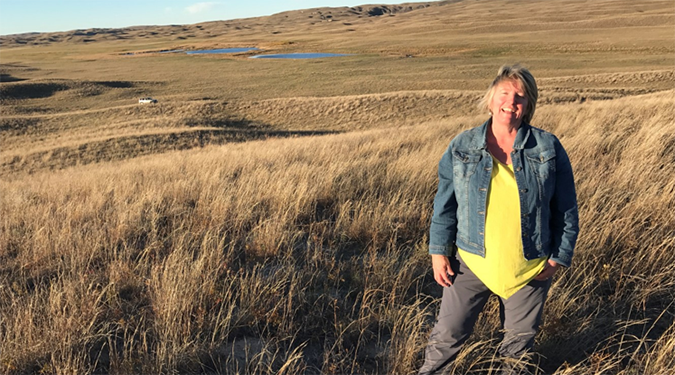
- This event has passed.
Roots, Research and Resilience: Exploring the Future of the Nebraska Sandhills

Dr. Mary Ann Vinton will present “Roots, Research and Resilience: Exploring the Future of the Nebraska Sandhills,” for the 2025 Maiben Lecture at the Nebraska Academy of Sciences 2025 Annual Spring Meeting at the UNL East Campus Union. In her presentation, she will blend ideas from natural and social science to explore the status and future of the Nebraska Sandhills as one of the most intact grasslands in the world.
Dr. Mary Ann Vinton grew up as a member of a five-generation family of cattle ranchers in the Nebraska Sandhills. She did an undergraduate degree in Biology at the University of Wyoming, a MS at Kansas State University, and a PhD in Ecology at Colorado State University. She is now Professor of Biology and Director of Environmental Science at Creighton University in Omaha. Dr. Vinton teaches courses in biology, ecology, and environmental science. Her research program revolves around the ecosystem consequences of human impacts on plant communities, such as impacts wrought by invasive plants or the demise of once-common plants. Her research has been supported by the National Science Foundation, NASA-Nebraska Space Grant, and Nebraska Environmental Trust, and involves close mentoring of undergraduate research students. Recently, she has returned to the Sandhills to reconnect with her roots and study how landscapes are changing with management and climate. Dr. Vinton inherited a section of land on the Dismal River from her mother and “Kinkaided” by her great, great aunt, Mary Crouch. The section is known as the “Aunt Mary” and is surrounded by family. She has used the Aunt Mary as a study site for biodiversity work and analyses of the landscape diversity inherent in the wet meadows and dry dunes in the Sandhills. In talking with friends and family, Dr. Vinton has become interested in the factors that affect land management and how decisions and attitudes are often not based on science or economic optimization, but often involve feelings of obligation and connection, stemming from long relationships between one another and land.
Visit neacadsci.org for more information.